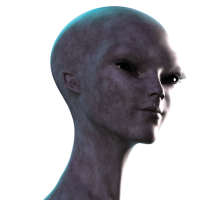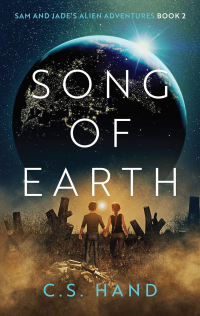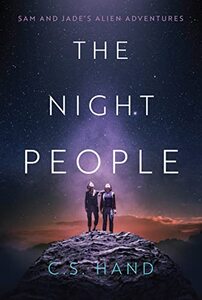What was your ambition when you were a kid?
The first thing I can remember wanting to do was to write novels. The adults around me laughed off this idea—it was childish, not to be taken seriously. So, I decided to be more practical and spent most of my life in education, including curriculum writing and later writing nonfiction science books for high-school students. It was writing, just not the writing I had dreamed of.
What was your life like growing up?
Kind of a cliché— I was a Kansas farm girl. It was a “dirt farm” (not a rich industrial farm). We were poor but always had plenty to eat. I went to a small rural school and never left Kansas until I went to college. So, I was (and have remained) shy and unsophisticated.
How were you first introduced to writing?
In a way, I introduced myself—I read constantly and remember thinking I would like to be a person who wrote books like those I read. I also had a couple of teachers who encouraged me and complimented my writing.
What is the importance of reading good literature in life?
Good literature provides a portrait of life. It transports the reader to places they would not otherwise experience and ignites their imagination. It can be relaxing, challenging, uplifting, or even frightening, but it always enriches a person’s life.
How did you come up with the plot of your novel, The Night People?
I don’t even remember. I’ve been fascinated most of my life by the possibility of alien life and had read a number of books on UFOS and supposed alien encounters. Some accounts seemed reasonable; others did not. At some point, I must have asked the question, “What if a couple of ordinary kids encountered aliens? How would they react?” But the book percolated in my mind for a long time before I started writing it, so I’ve kind of forgotten its origins!
Suppose you see an alien; would you run away or rush towards it?
Given that I’m a pretty cowardly person, I would probably either run or be paralyzed—as most people seems to be in accounts I’ve read. I would be unlikely to show any of the courage my characters show.
In a book, what makes you relate to a character most?
The same things that make me relate to a person in real life. They should be good people who try hard but have flaws they try to overcome. They should be complex and interesting—the type of people I would enjoy hanging out with—but not too “perfect.” They should be the kind of people I care about and can root for when things go wrong for them.
Ever have a problem with figuring out a name for your book? What did you do?
I prefer short, simple titles for books or chapters, but I’ve never been good at coming up with them. I made and discarded a long list of names before choosing one. I hope I ended up with a title that reflects the focus of what the main characters are confronting in the book.
Is writing science books an art?
Writing any kind of book is an art, in that it requires the author to put words together in a way that speaks to the reader’s mind and imagination. I struggle with this, but good science writers do it well. They take a complex scientific concept and paint a picture of how it operates in the real world. I would consider this art.
If you had to make a curriculum for a 5th grader, what would you start with?
Depends on the type of school. In the “real world,” I would be limited by state curriculum standards. But since I write fiction, I would go with what I think a 10-year-old should know and then present it in fun, realistic ways. Kids learn by copying adults; they want to know and do what adults know and do. Reading, writing, and math don’t need to be presented as assignments. They can be part of projects in which kids tackle and solve real problems—from simple things like buying groceries to last a week using a given budget, to more complex things like determining causes of global warming and using those causes to suggest possible solutions. They might learn about history and government by—for example—reading the Bill of Rights (one right at a time), discussing what that right means and how it would play out in the real world. And then, have them read news articles (from newspapers, online media, and television) and analyze these in terms of how they follow (or don’t follow) the amendment. In other words, find a relevant, important topic and turn them loose, with guidance and help as needed.
If you were to teach the world one thing, what would it be?
The importance of choosing love over hate, peace over war, and preservation of life over destruction of life. The understanding that all of these goals are complex, not simplistic, issues and that fulfilling these goals requires daily, thoughtful choices.
Should you really 'write what you know'?
Depends. We all learn (or should learn) every day of our lives. If I want to write about something I don’t know in the moment, I make sure to do my research—I read, find experts to help and/or read what I’ve written, etc. What I would not do is write “off the top of my head” (i.e., without knowing about it and without checking). I hope I never write something based on ignorance. But experience is always the best teacher. I think a writer writes best and most truly about things she has experienced.
Do you believe in "aliens?" Why or why not?
I consider this the wrong question. (I would have written it in a different way: Do you “believe” in aliens?) It is not a question of belief. Belief comes into play when it is not possible to prove something, not possible to show irrefutable evidence for it. No doubt I’ll get in trouble for this, but I compare the situation to belief in God. We cannot prove the existence of God. Many people say things like “Just look at that beautiful sunset! That proves that God exists!” Well, no, it doesn’t. It proves that a person will make assumptions about what causes something without actually knowing. A beautiful sunset is not evidence of God. It’s evidence of the scattering of light and particles in the atmosphere (which can be demonstrated). We know that UFOs/UAPs exist. We just don’t know what they are or who/what is operating them. We know that they act in ways no other aerial phenomena are known to act. But this does not prove they are operated by aliens. It proves we don’t yet know. They might be operated by as-yet-unidentified human groups with highly advanced technology. Or even by hidden underground non-humans or people from the future.




